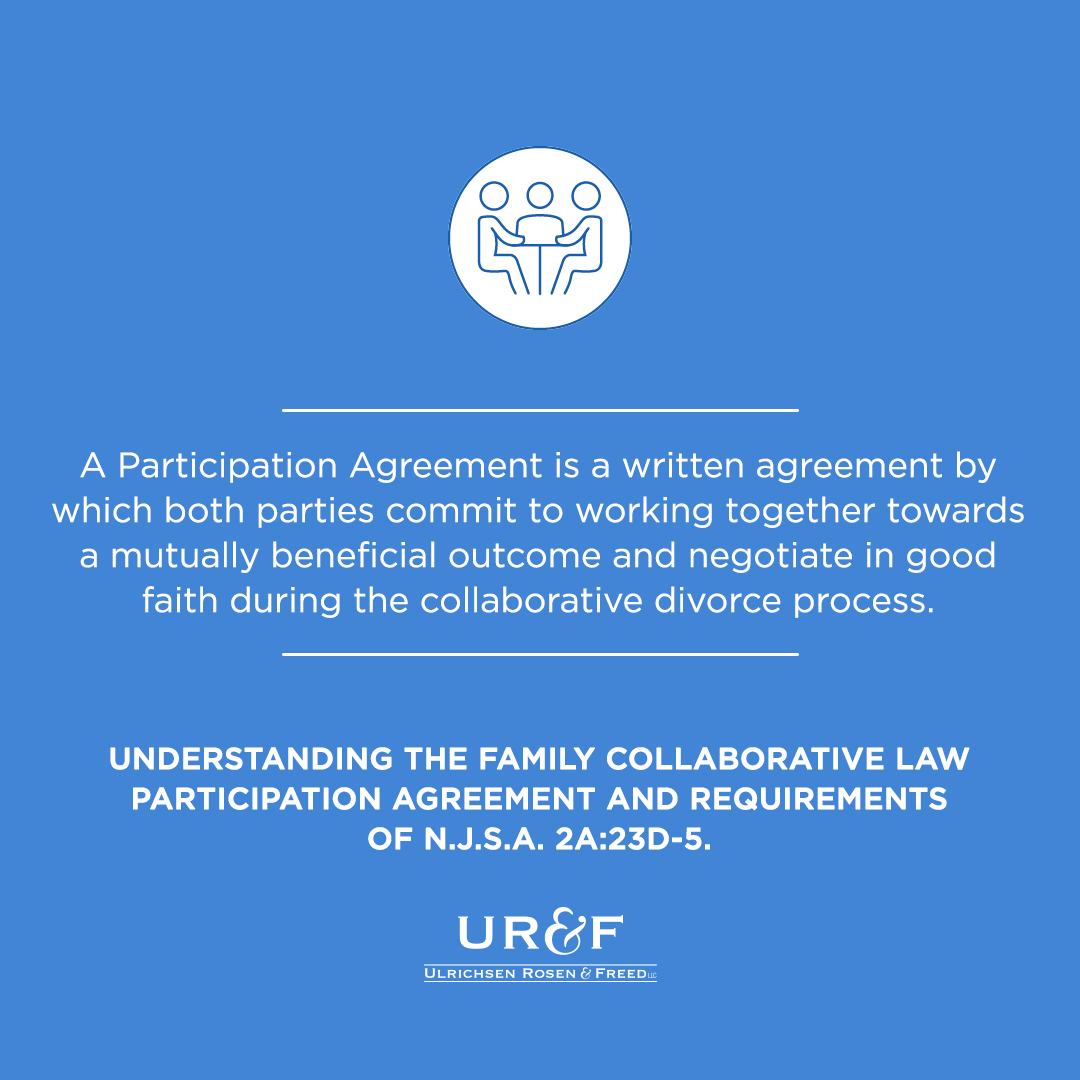Understanding the Family Collaborative Law Participation Agreement and Requirements of N.J.S.A. 2A:23D-5.
N.J.S.A. 2A:23D-5 requires the parties to enter into a Participation Agreement before beginning the collaborative divorce process. A Participation Agreement is a written agreement by which both parties commit to working together towards a mutually beneficial outcome and negotiate in good faith during the collaborative divorce process.
The key element of a Participation Agreement is that both parties must agree that they will not ask a court to decide a disputed issue. If either party files a complaint with the court, both collaborative attorneys must withdraw from the case and the collaborative divorce process is terminated.
Another key component of a collaborative divorce and thus, contained in the Participation Agreement is that both parties are to voluntarily disclose all financial and other relevant information. The Agreement also addresses the need for both be willing to hear the interests and concerns of the other spouse and be able to keep discussions respectful.
Given the key elements of a collaborative divorce, N.J.S.A. 2A:23D-5 details the required elements of a Participation Agreement. Those requirements include:
(1) be in a record;
(2) be signed by the parties;
(3) state the parties’ intention to resolve a family law dispute through a family collaborative law process;
(4) describe the nature and scope of the family law dispute;
(5) identify the family collaborative lawyer who represents each party in the process;
(6) contain a statement that a family collaborative lawyer’s role is consistent with the Rules of Professional Conduct promulgated by the Supreme Court of New Jersey;
(7) set forth the manner by which a family collaborative law process begins and the manner by which it terminates or concludes;
(8) state that any family collaborative law communication of a party or a nonparty participant is confidential and subject to certain evidentiary privileges and how / when those privileges can be waived; and
(9) state the rules that govern the conduct of a family collaborative lawyer.
If you chose a Collaborative Divorce, you will discuss the terms of the Participation Agreement in your first team meeting with your spouse and the other lawyer. It is at that time that most parties commit to the collaborative divorce process and sign Participation Agreement. The Participation Agreement is the roadmap for your collaborative divorce and is not to be entered into lightly. Once signed, it provides a way to dissolve a marriage respectfully, swiftly and out-of-court.
For questions regarding the collaborative divorce process or any other family law related issue, please contact the attorneys of Ulrichsen Rosen & Freed LLC. Our firm is focused exclusively on the practice of family law and serves clients throughout New Jersey including clients residing in Mercer County, Somerset County, Hunterdon County, Burlington County and Middlesex County.
Both Wendy Rosen, Esq. & Derek Freed, Esq. are certified as collaborative law attorneys at Ulrichsen Rosen & Freed LLC.


